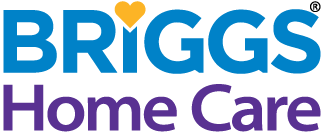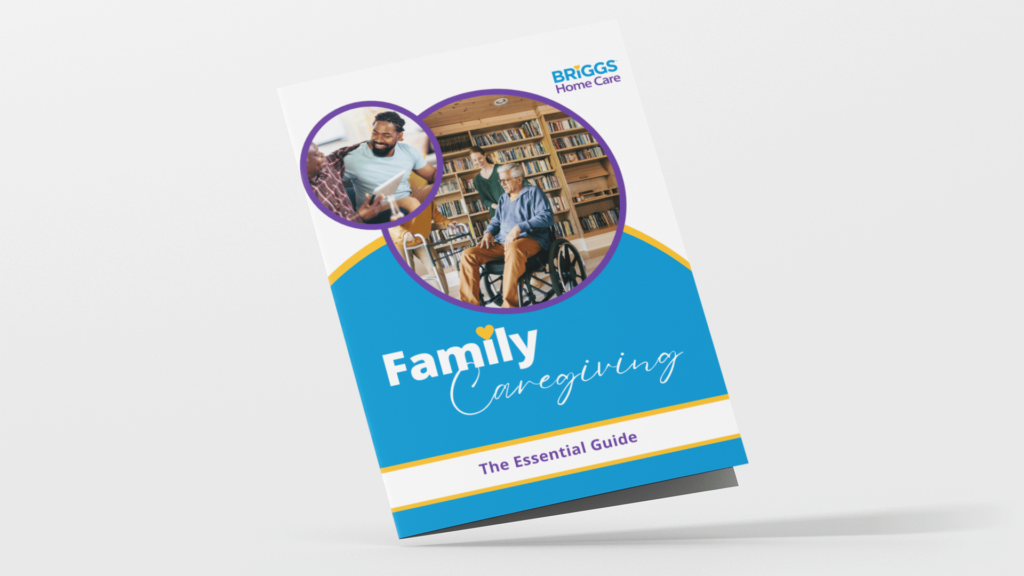Family caregiving is a formidable yet unconditional role taken on by millions around the world. At its core, caregiving is an act of love and compassion, a commitment to supporting the health and well-being of a loved one. If you find yourself in this role or about to become a family caregiver, it’s essential to grasp the fundamentals of this position. Here’s what you need to know:
The Role of a Family Caregiver
Your role as a family caregiver is multifaceted. It encompasses managing medical care, supporting daily activities, providing emotional support, and ensuring safety and comfort.
The Emotional and Physical Responsibilities
Your role as a family caregiver is multifaceted. It encompasses managing medical care, supporting daily activities, providing emotional support, and ensuring safety and comfort.
You are now not just a child, parent, or spouse but also a crucial link in the care chain. Your days may be filled with administering medication, coordinating doctors’ appointments, and being a companion to your loved one. The emotional weight of this responsibility can be daunting, often leading to feelings of guilt, anger, and profound sadness, while the physical demands can be exhausting.
Legal and Financial Considerations
Becoming a family caregiver also involves navigating a landscape of complex legal and financial responsibilities. Understanding power of attorney, living wills, and guardianship arrangements is crucial to ensure you can make decisions on behalf of your loved one.
Furthermore, managing finances, healthcare plans, and insurance can be a minefield. Seek legal and financial advisors specializing in elder care to help you navigate these critical areas.
The Challenges Faced by Family Caregivers
Entering the world of family caregiving often means encountering many challenges that require patience and resilience. Here are the key areas in which you’re likely to face obstacles:
Balancing Caregiving with Personal Life
Balancing your personal life with your caregiving responsibilities is the first and arguably most challenging hurdle. This can cause a significant shift in your relationships, career, and overall well-being. Establishing boundaries and allocating time for self-care and other personal commitments is critical.
The Emotional Impact
The emotional rollercoaster of caregiving is as intense as it is unpredictable. The emotional impact can be overwhelming, from the daily joy of supporting a loved one to the profound sadness of witnessing their struggles.
The Physical Impact
The physical demands of caregiving, especially for those requiring round-the-clock care, can lead to caregiver burnout if not managed effectively. Monitoring your health and seeking respite care to avoid depletion is vital.
The Financial Impact
For many family caregivers, the financial impact can be as severe as the emotional and physical challenges. Loss of work hours, medical expenses, and additional caregiving costs can affect financial stability. Exploring support systems and financial aid can ease this burden.
Essential Skills for Effective Caregiving
To be a practical family caregiver, you must develop various skills to manage the day-to-day challenges of care delivery. Here are three essential skills you should focus on:
Communication Skills
Effective communication is the foundation of quality care. It is indispensable to learn to speak with medical professionals, ask questions, and advocate for your loved one. Practice active listening and be open to different perspectives while communicating with the care team and your family.
Medical and Nutritional Knowledge

Gaining a basic understanding of your loved one’s medical condition and dietary requirements can significantly enhance the quality of care you provide. Attend medical appointments with them, take notes, and ask for educational materials from healthcare providers.
Time Management
Caregiving often feels like a juggling act with no clear finish line. Effective time management ensures that all aspects of care and personal life are taken care of. Create schedules, prioritize tasks, and don’t hesitate to delegate when necessary. Having a well-thought-out caregiving plan can make all the difference.
Creating a Supportive Environment for Caregiving
Ensuring the environment is conducive to caregiving helps maintain the physical and emotional health of both the caregiver and the care recipient. Here are a few things to consider:
Designing a Safe Home
Your home should be a sanctuary for both you and your loved one. Implementing safety measures such as grab bars, non-slip surfaces, and proper lighting can prevent falls and accidents.
Leveraging Community Resources
You do not have to go through the caregiving journey alone. Numerous community services and support groups are tailored to the needs of family caregivers. Contact local senior centers, church groups, and caregiver networks to find the help and companionship you need.
Financial Management for Caregivers
Managing the financial aspects of family caregiving can be complex. It’s crucial to be organized and proactive in this area:
Budgeting for Care Expenses
A vital first step is creating a budget that includes medical costs, home modifications, and additional care-related expenditures. This can help you plan and potentially reduce financial strain.
Understanding Insurance and Government Aid
Familiarize yourself with the ins and outs of health insurance policies and any government aid programs your loved one may qualify for. Medicaid, Medicare, and the Family and Medical Leave Act (FMLA) are just a few resources that can be accessed for support.
Legal Considerations in Caregiving
Navigating the legal aspects of caregiving can be daunting. Here’s what you need to be aware of:
Power of Attorney and Guardianship
Understanding and obtaining the appropriate legal documents, such as the power of attorney, can be invaluable in making efficient care-related decisions. In cases where decision-making capacity is lost, guardianship may be necessary, albeit with more complex legal processes.
Patient Rights and Advocacy
As a patient advocate, you must ensure your loved one’s wishes and rights are respected within the healthcare system. Understand their patient rights and be prepared to advocate for them when necessary.
The Emotional Journey of a Family Caregiver

Caring for a loved one is an intensely emotional experience. It’s essential to acknowledge and address these emotions:
Coping with the Emotional Ups and Downs of Family Caregiving
The emotional ups and downs of caregiving are standard but can be taxing. Engage in activities that bring you solace and joy, and don’t hesitate to seek emotional support when needed.
Finding Joy in Caregiving
Amidst the challenges, moments of joy come with caring for a family member. Celebrating small victories and cherishing the quality time spent together is vital to finding fulfillment in one’s role as a caregiver.
Building a Caregiving Support Network

A robust support network is essential for every family caregiver. Here’s how to build one:
Utilizing Online Forums and Local Groups
The internet has made connecting with like-minded individuals facing similar situations easier. Join online forums and local caregiver support groups to share your experiences and receive encouragement from others.
Seeking Professional Counseling
Therapy can be an essential tool in managing the unique stresses of caregiving. Professional counselors are trained to help you work through complex emotions and provide strategies for coping.
Caregiver Self-Care and Mental Health
Amidst caring for others, it’s easy to forget the importance of self-care. Here are some strategies to maintain your well-being:
Importance of Self-Care
Self-care isn’t a luxury; it’s a necessity. Prioritize activities that promote your physical, mental, and emotional health.
Strategies for Maintaining Mental Health
Engage in stress-reducing activities such as exercise, meditation, or hobbies you enjoy. Seek professional help if you feel overwhelmed or unable to manage stress.
Knowing When It’s Time to Seek Professional Help

There comes a point in the family caregiving journey when your loved one’s needs might exceed what you can provide. Recognizing the signs that it’s time to consider professional help can be crucial for their well-being and your peace of mind. Such signals may include your loved one’s increased medical needs, the physical strain of caregiving becoming too much, or the emotional toll on your mental health.
Seeking a professional caregiver from an in-home care company can ensure that your loved one continues to receive high-quality care while allowing you to recharge and focus on other aspects of your life and relationship with them. Research and consult with professionals to find a service that meets your loved one’s needs and preferences.
FAQs on Family Caregiving
Here are some common questions that often arise when it comes to family caregiving, along with actionable responses:
How do I get my family to help with caregiving?
Engaging your family in an open dialogue about your challenges can foster understanding and support. Be specific about the help you need and welcome contributions, whether through direct care, financial support, or emotional encouragement.
What professional services can I employ to help with caregiving?
Professional services like in-home care, adult day programs, and respite care can support you while ensuring your loved one receives the required care. Research and consult with care providers to find the best fit for your situation.
How can I maintain my role as a caregiver and not lose myself in the process?
Remember that you are more than just a caregiver. Continue to engage in activities that bring you joy and maintain your sense of self. Take breaks when needed, and be honest about your limitations.
Conclusion
Family caregiving is an extraordinary act of compassion and love. It comes with unique challenges and rewards that can affect every facet of your life. By understanding the responsibilities, navigating the challenges, and finding support, you can provide the best care for your loved one while taking care of yourself. Remember, you are not alone, and resources are available to help you on this caregiving journey. Take each day as it comes, celebrate the small wins, and be kind to yourself.
Additional Resources for Family Caregivers
To further support you in your caregiving role, here are some links to resources and actionable advice that offer help and guidance.
- 10 Tips for Balancing Work and Family Caregiving Responsibilities
- Nutrition for the Caregiver: Maintaining Your Health While Caring for Others
- The Emotional Journey of Caregiving: Coping with Guilt and Grief
- Empowering Family Caregivers: Exploring the Latest in Family Caregiving Technology
- Understanding the Legalities: A Family Caregiver’s Guide to Medical and Financial Decisions
- Creating a Sustainable Caregiving Plan: A Checklist for Family Caregivers
- Navigating Long-Distance Caregiving: Strategies for Managing Care from Afar






